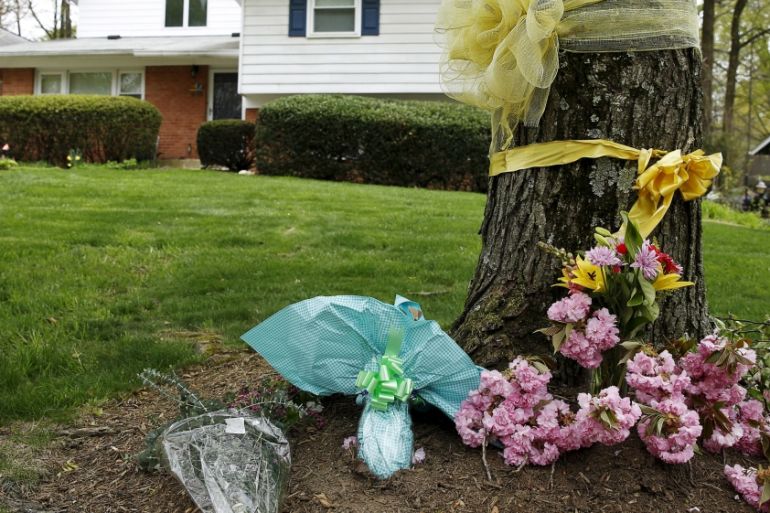Blog: Is the US doing enough for families of hostages?
Aid worker’s family expresses “disappointment” in government after Obama says he was killed by US drone strike.

There are many questions about what went wrong during the US drone strikes in January that killed four men in Pakistan – two US citizens who had joined al-Qaeda, and the two aid workers, American and Italian, who were al-Qaeda’s hostages.
One question facing the US government: Is it doing enough to help the families of those taken hostage by al-Qaeda or other groups, and if not, why not?
Keep reading
list of 4 itemsControversial law sparks fist fight in Georgian parliament
‘Prejudice, Islamophobia’: Free speech fears as UK redefines extremism
Dominican FM on Haiti gang violence crisis: Spillover threat?
On Wednesday, US President Barack Obama called the family of Warren Weinstein, the USAID contractor on assignment in Lahore, to tell them of his death. On Thursday, the family posted on their website a note of thanks to their members of Congress and certain Federal Bureau of Investigation (FBI) agents.
Then, there were these words from Weinstein’s widow, Elaine: “Unfortunately, the assistance we received from other elements of the US Government was inconsistent and disappointing over the course of three and a half years. We hope that my husband’s death and the others who have faced similar tragedies in recent months will finally prompt the US Government to take its responsibilities seriously and establish a coordinated and consistent approach to supporting hostages and their families.”
The US State Department says it’s not clear from Elaine Weinstein’s words that she was criticising them.
Families’ criticism
However, other families of US citizens – most notably journalist James Foley, murdered by ISIL in 2014 – have called the agency’s assistance wanting. They complain of phone calls not answered, information not shared, and most distressing for them, a seeming lack of urgency regarding their loved ones’ wellbeing.
Acting State Department spokesperson Marie Harf says everyone from Secretary of State John Kerry to frontline consular officials try to do their best to help families during an extremely harrowing time – but that it’s a very difficult job.
But with the rise of ISIL in mid-2014, Harf says the president ordered the State Department and other federal agencies to review how they help families of those taken hostage, and to come up with steps to do better.
Lisa Monaco, assistant to the president for homeland security and counterterrorism, asked 82 families of current and former hostages to give the administration feedback on the support they’ve received during their ordeals.
The National CounterTerrorism Center (NCTC) is incorporating the families’ comments in the review and a final report should be sent to the president in the next several weeks.
But when the report is complete, more difficult questions will be asked.
Will the review make a difference, as far as the families of missing US citizens are concerned?
What more can the US government do to help these families, and will it be enough?
Is it reasonable to think that the most powerful country in the world can move heaven and earth, no matter what? And if not, who’s going to tell the families of the missing?